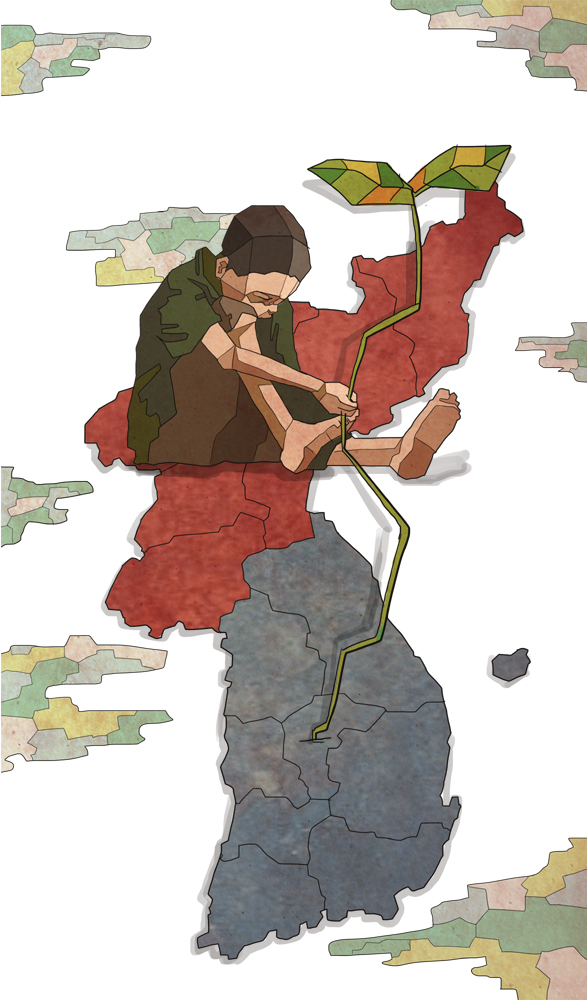More details on the North Korean soldier who survived 40 rounds of gunfire to cross into South Korea Monday may be offering a glimpse into the lives of soldiers up North, experts say.
Dr. Lee Cook-jong, the trauma specialist at Ajou University Hospital in charge of the patient, has successfully finished two rounds of surgery Wednesday, concluding the second operation by removing another bullet from the abdominal wall.

The man sustained five bullet wounds not just in his elbow and chest area as first reported, but also in his stomach.
Lee said he found hundreds of parasites, most likely roundworms, in the patient’s ruptured small intestine with the largest ones being around 27 centimeters in length. The parasites were in the patient’s body before he was wounded, the physician said, warning against a definitive prognosis due to the discovery.
Experts are guessing that the problem of parasite infections in North Korea is serious, while remaining cautious about generalizing the case to represent the entire population.
A 2015 study from Dankook University College of Medicine on the clinical status of North Korean defectors from 2006 to 2014 revealed that most patients had, in fact, at least two diseases, with more than 40 percent (seven out of 17) who had a stool examination having parasites.
Out of 169 defectors (163 female and six male), 68 patients had comorbidities, the most common being tuberculosis (13.6 percent), chronic hepatitis B (10 percent), and chronic hepatitis C (9.4 percent), the findings showed.
“I don’t know what is happening in North Korea, but I found many parasites when examining other defectors,” said Professor Seo Min at the Dankook University Medical School. “In one case, we found 30 types of roundworms in a female defector.”
People contract roundworms by eating vegetables fertilized with human manure. Human feces produced from eating these plants may then be recycled to grow more vegetables, which increase the roundworm population.
Reports are now confirming traces of food, mostly corn, in the soldier’s abdominal cavity. The defector has been profiled to be 170 centimeters (5’5) and 60 kilograms (132 pounds), falling under the average height and weight of high school students in South Korea.
The experts say food may not be adequately rationed to North Korean soldiers whom may suffer from malnutrition. Parasite infection may arise from a lack of fertilizer, they add.
The number of defectors from the North has increased in recent years with statistics showing 26,854 North Korean defectors living in South Korea as of June 2014. Of them, 70 percent (18,776) were women, the Dankook University study showed.
Related articles
- Parasites make treatment of N. Korean defector harder, doctor says
- N. Korean soldier, shot while crossing border, in ‘critical’ condition
- N. Korean defector ‘dust off’ by US Army’s air medics
- Health minister to consider supplying antiparasitic drugs to N. Korea
- N. Korean defector has hepatitis B, inactive tuberculosis
- Doctor strikes back at lawmaker’s criticism regarding N. Korean defector
- Trauma surgeon who saved North Korean soldier in 2017 to head Daejeon military hospital

